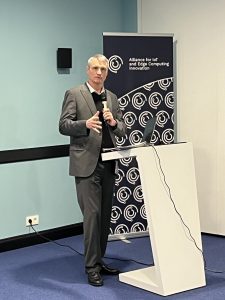AIOTI presented its Strategic Research and Innovation Agenda
AIOTI organised a well attended workshop on 26 January 2023 in Brussels to present its Strategic Research and Innovation Agenda (AIOTI SRIA).
The full document can be found here, presentation from the workshop here and the recording here.
At the workshop, an overview of the state of the play of the European research partnerships was presented, their collaboration and links to the AIOTI SRIA.
The presentation of the selected Horizon Europe European Partnerships showed a complex framework, to be considered with the complexity of the EU and national research instruments. The angle between the Application domains (e.g. Health, Agriculture …) and the Technology domains (KDT, AI …) should be considered for alignment, to ensure that the technologies serve the application domain objectives. Damir Filipovic, AIOTI Secretary General said that the different partnerships do not work in Silos thanks to the interaction between communities, including AIOTI. Thus, AIOTI vertical WGs should also consider to glue their respective application domain partnership with other technology domain partnerships.
The AIOTI SRIA, presented by Ovidiu Vermesan, AIOTI WG Research and Partnership Chairman is essential to propose a specific focus among the different partnership programme, based on the vision and objective of the AIOTI Membership. The AIOTI computing continuum consist of a sub-set of concrete technology targets.
The European Commission presentation of the Research Perspective by Mr Rolf Riemenschneider, provided a clear perspective of the next decade research for IoT and some important take away for AIOTI relating to AI, MetaOS and MetaWeb, with the aim to prepare the programme of the new European Commission in 2024. AIOTI also target to support with its next manifesto the transition of the European Commission towards 2024.
In the context of connectivity for IoT, more consideration should be provided to short range communication, having already a leading in Home IoT (i.e. with ZigBee and Matter driven by CSA).
The Research agenda presentation also raised the importance of standardization or “pre-normative” activities to ensure interoperable and scalable deployments. It appears that SDOs tends to compete, especially on hype topics, raising a risk of creating discrepancies or reducing the efficiency of standardisation bodies, who are expected to complement each other. AIOTI provide useful standardisation analysis and identification of gaps. Identifying conflicts among standardisation bodies could contribute to streamline the standardisation activities.
Policy is relevant especially with regards to cyber-security and privacy protection, forming driving challenge for IoT innovation.
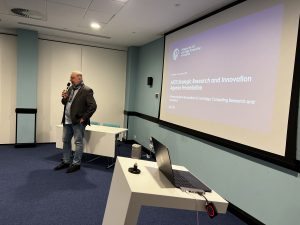
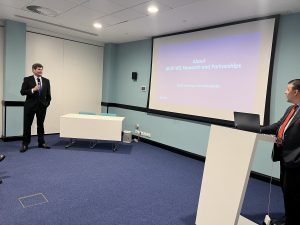 .
. 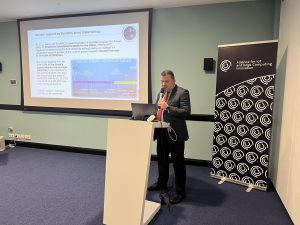
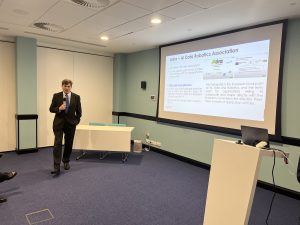
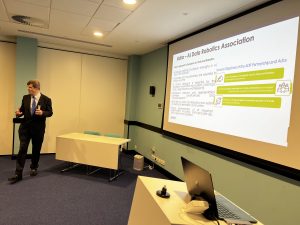 .
. 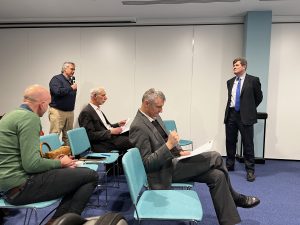 .
. 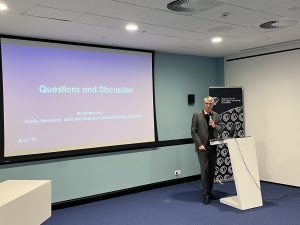 .
. 